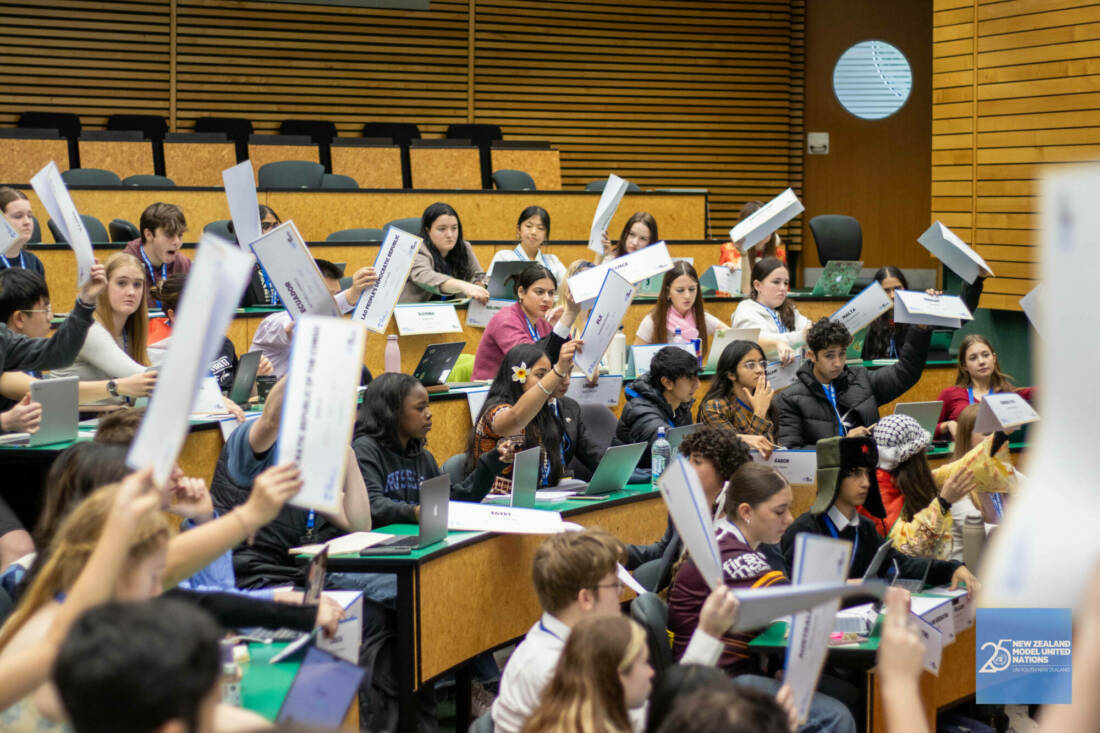New Zealand Model United Nations
The NZ Model UN, organised by UN Youth and held at Victoria University of Wellington, brings together secondary school delegates and tertiary volunteers from across New Zealand to engage in negotiations and debates, as well as hear from renowned guest speakers.
NZ Model UN 2025
At NZMUN, participants step into the shoes of diplomats, representing countries from across the globe in a realistic simulation of the United Nations. In committees ranging from the Security Council to the Human Rights Council, delegates debate pressing global issues, draft resolutions, and collaborate to find solutions to some of the world’s biggest challenges.
The theme for NZMUN 2025 was UN+Limited, which highlighted not only the issues that the global community faces, but also the potential all of the delegates have to drive meaningful change, even in the modern global landscape.
NZMUN 2025 sought to go beyond the ordinary, inspiring delegates to explore uncharted territories in international relations. This year, over 300 rangatahi travelled from across Aotearoa to attend the event, which saw them develop and grow their skills and networks in order to lead positive change in their communities.
The 2025 event kicked off with an opening ceremony at Parliament hosted by former UN Youth National President Carl Bates MP and attended by multiple members of the diplomatic core.
Over the course of the event, some delegates had the opportunity to visit the embassy of the UN member state they were representing.

NZ Model UN 2023
The event aimed to cultivate global citizenship and appreciation for international institutions through an enriching educational conference.
Delegates represented UN member states, engaging in negotiations and debates, and heard from renowned guest speakers. which included Wellington Mayor Tory Whanau and an expert panel who discussed the topic of modern-day slavery.
Tertiary-aged volunteers facilitated the event, which adopted the theme "UN+Conventional," encouraging unconventional problem-solving in light of the pandemic.
The 2023 conference featured new initiatives like the Regional Delegation and covered diverse topics including data pollution and international labour rights.
Participants left with improved interpersonal skills, honed public speaking abilities, and a commitment to effect change in their communities.

